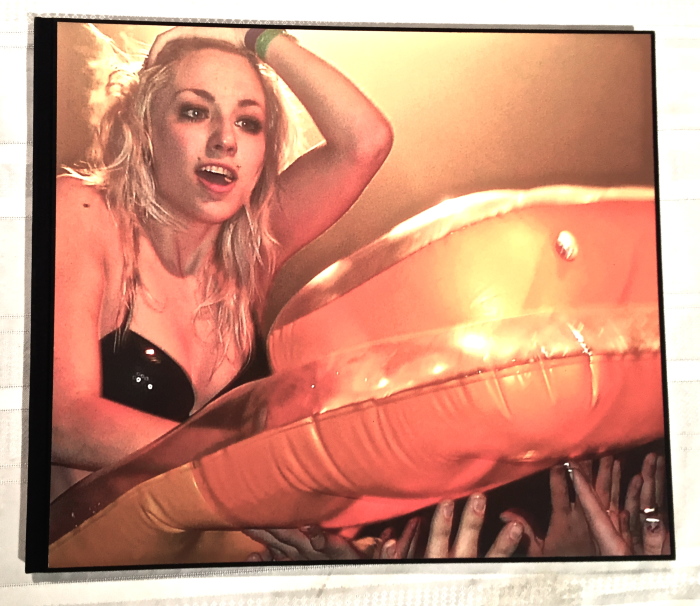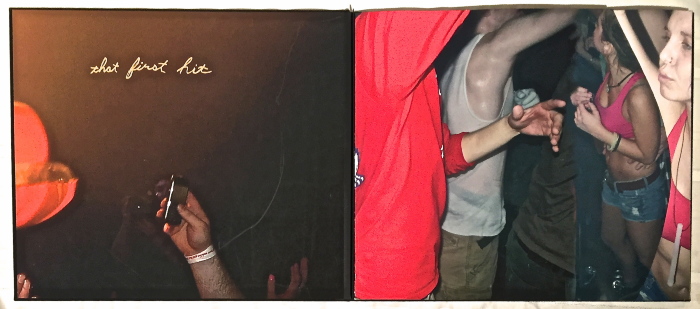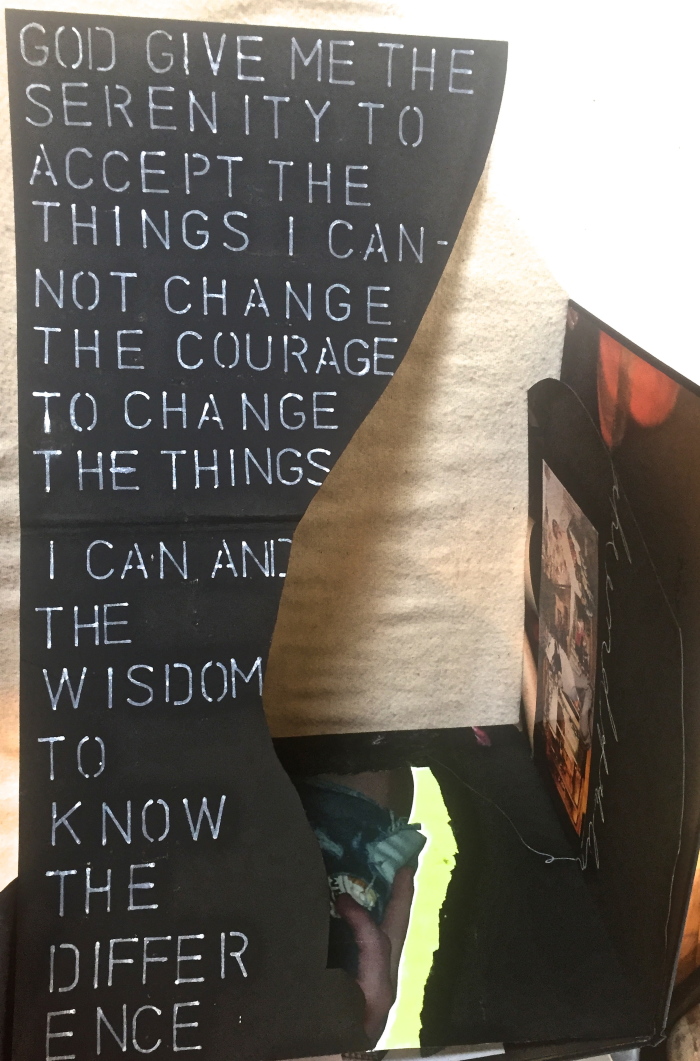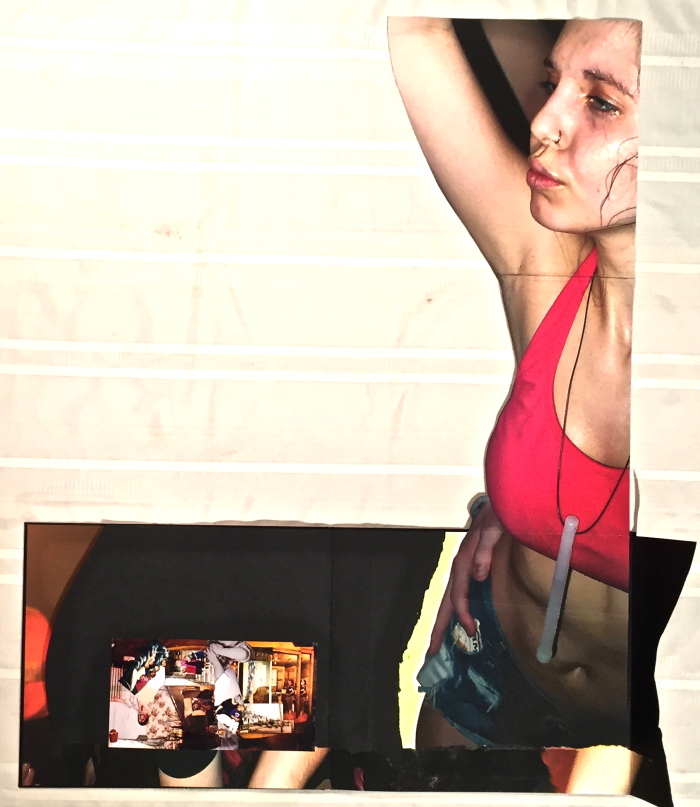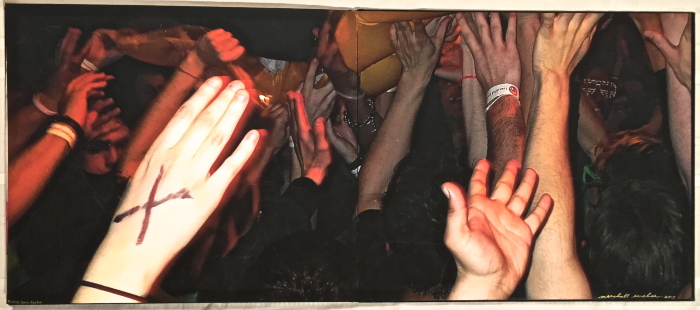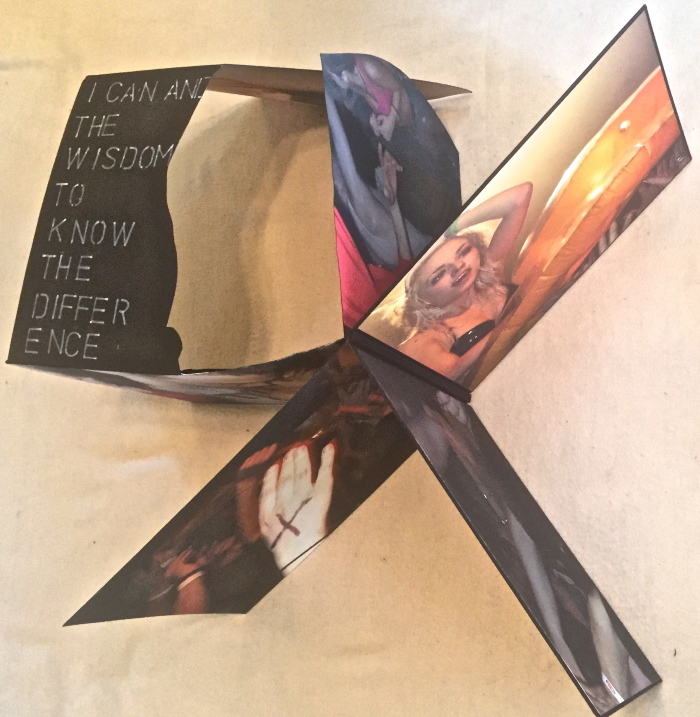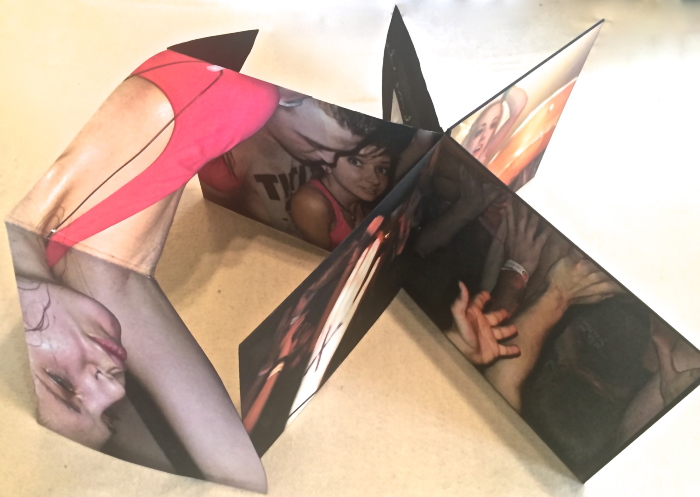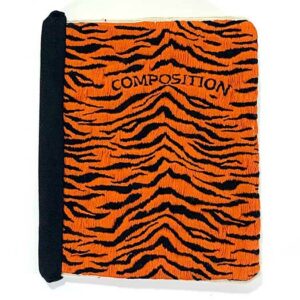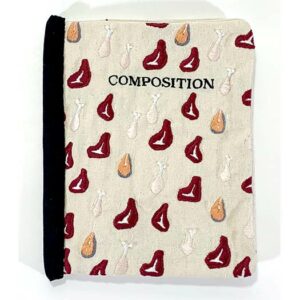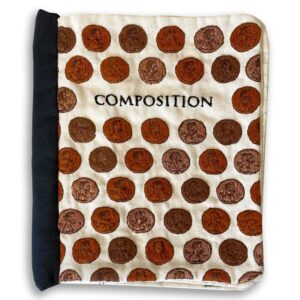that first hit
that first hit
Date
2017
Edition Size
unique
Media
Collage, Ink, Inkjet, Photo
Binding
Cloth case
Format
Artist Book
Dimensions
14 × 16 in
Location
Brooklyn, NY
Collection
Unique Books$ 2,800.00
Unavailable
View Collectors
St. Olaf College
“that first hit” is Book #2 in the series “If I can’t dance it’s not my revolution.”
“that first hit” is an image/text poem collage exploring the relationship between addiction, consumerism, exhubrance and obsession, the up and the down, the start and the finish, the high and the low, the top and the bottom.
This book’s pages are alternate sizes and are mounted in various manners with one large vertical gatefold that provides alternative viewing formats for the book.
The book features photographs taken at a Steve Aoki concert at the Granada Theater in Lawrence, Kansas in April of 2011 and other collaged photographs taken in Seoul, Korea, and New Jersey which are printed on commercial Kodak photo paper. The concert photos were inkjet printed by Dana Smith on Moab paper.
—————–
that first hit
the end of the line
God,
give me the serenity
to accept the things I cannot change,
the courage to change the things I can
and the wisdom
to know the difference.Enter
Dreamscape
————
Regarding the series.
“If I can’t dance it’s not my revolution.”, is the title of a series of 12 large scale unique books concerned with the liberation of the human body from oppressive social constructions like race, static and essentialist cultural identities, dichotomous gender roles, and profit-driven health care. In the series dance and the image of dancers are used as the utopian symbols of total freedom and creative play. The book’s structures and materials are meant to reflect and magnify the gestures of dance and play. The scale and sometimes oblique construction of the books, which contain gatefolds in various directions and numerous paging possibilities, require the reader to dance around with the books activating tactile and choreographic reading.
The title, while typically attributed to but not actually used by Emma Goldman, does, in my and others interpretaion, accurately and succintly convey her feelings about women not having their bodies or any creative behavior of same policed by men (or women) of any political persuasion. She describes the incident that catalyzed the phrase in her 1931 auto-biography “Living my Life”.
The series as a whole is an exploration of Spectrum Theory and Fractal Biology, two ontologies that I have developed to facilitate the necessary dissolution of non-sustainable binary, essentialist and fundamentalist thought.

